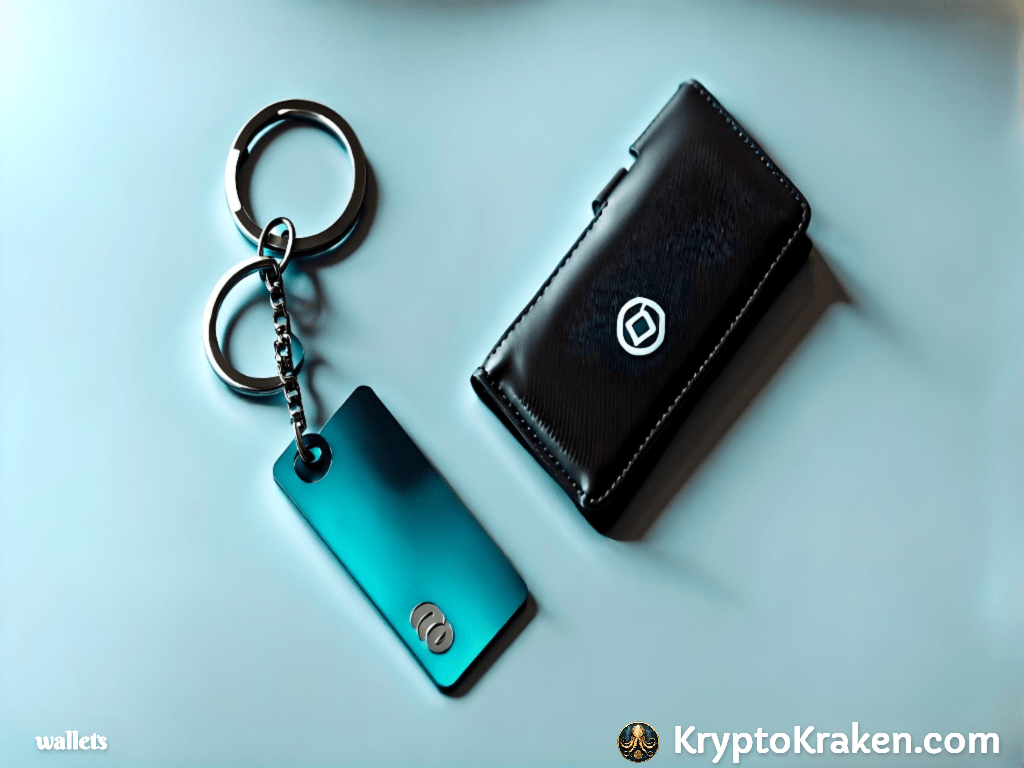
- August 24, 2023
- Dennis Frank
- 4
Table of Contents
Exploring the Different Types of Cryptocurrency Wallets
Cryptocurrency wallets are digital wallets that store your private keys, allowing you to manage your digital assets securely. They come in different types, each with its unique advantages and disadvantages. Understanding these different types of cryptocurrency wallets can help you choose the right one for your needs. In this article, we’ll explore the different types of cryptocurrency wallets, how they work, and their pros and cons.
Understanding Cryptocurrency Wallets
A cryptocurrency wallet is a software program that stores your private keys, allowing you to manage your digital assets. Each cryptocurrency wallet has a public address, which allows you to receive cryptocurrencies, and a private key, which allows you to send them. When you make a transaction, your wallet signs the transaction with your private key and broadcasts it to the blockchain for verification. Once your transaction is verified, it’s added to the blockchain, and your digital assets are transferred to the recipient’s wallet.
What is a Cryptocurrency Wallet?
A cryptocurrency wallet is a digital wallet that stores your private keys, allowing you to securely manage your digital assets. It’s like a bank account for your cryptocurrencies, but unlike a bank account, you have complete control over your funds.
Cryptocurrency wallets come in different forms, including desktop wallets, mobile wallets, and hardware wallets. Desktop wallets are software programs that you download and install on your computer. Mobile wallets are apps that you download and install on your smartphone. Hardware wallets are physical devices that you plug into your computer or smartphone.
Desktop wallets are convenient because they allow you to access your digital assets from your computer. However, they’re also vulnerable to malware and hacking. Mobile wallets are convenient because you can access your digital assets from anywhere, but they’re also vulnerable to theft and hacking. Hardware wallets are the most secure type of cryptocurrency wallet because they store your private keys offline, making them less vulnerable to hacking and theft.
How Do Cryptocurrency Wallets Work?
Cryptocurrency wallets work by securely storing your private keys and allowing you to manage your digital assets. They communicate with the blockchain to send and receive transactions. When you make a transaction, your wallet signs the transaction with your private key and broadcasts it to the blockchain for verification. Once your transaction is verified, it’s added to the blockchain, and your digital assets are transferred to the recipient’s wallet.
The blockchain is a decentralized ledger that records all transactions made with cryptocurrencies. Each block in the blockchain contains a list of transactions, and each block is linked to the previous block, forming a chain of blocks. This makes the blockchain secure and tamper-proof, as any attempt to alter a block would require altering all subsequent blocks in the chain.
Cryptocurrency wallets also allow you to view your transaction history and check your balance. Some wallets even allow you to exchange one cryptocurrency for another, or to buy and sell cryptocurrencies using fiat currency.
It’s important to keep your cryptocurrency wallet secure by using a strong password, enabling two-factor authentication, and keeping your private keys offline. If you lose your private keys, you could lose access to your digital assets permanently.
In summary, cryptocurrency wallets are software programs that allow you to store and manage your digital assets. They come in different forms, including desktop wallets, mobile wallets, and hardware wallets. They work by securely storing your private keys and communicating with the blockchain to send and receive transactions. It’s important to keep your cryptocurrency wallet secure to protect your digital assets.
Hot Wallets
A hot wallet is a software wallet that’s connected to the internet. They’re convenient to use for frequent transactions but are less secure than other types of wallets.
What are Hot wallets?
Hot wallets are software wallets connected to the internet, making them accessible and convenient for frequent transactions. They’re often used for day-to-day spending and transferring cryptocurrencies between exchanges. Hot wallets can be accessed from anywhere in the world, as long as there’s an internet connection. This feature makes them a popular choice for people who need to access their cryptocurrencies on the go.
However, the downside to hot wallets is that they’re more vulnerable to hacking and theft. As they’re connected to the internet, they’re at risk of being hacked by cybercriminals who can steal the private keys that enable access to the wallet. Additionally, if the device that the hot wallet is installed on is lost or stolen, the wallet’s contents can be easily accessed by anyone who finds it.
Pros and Cons of Hot Wallets
The main advantage of hot wallets is that they’re convenient to use and easily accessible. They allow for quick and easy transactions, making them a popular choice for people who frequently trade cryptocurrencies. Additionally, hot wallets are often free to use, making them an affordable option for people who are just starting with cryptocurrencies.
However, the main disadvantage of hot wallets is their security. As they’re connected to the internet, they’re more vulnerable to hacking and theft. This means that if a hot wallet is compromised, the funds stored in it can be easily stolen. Additionally, if the device that the hot wallet is installed on is lost or stolen, the wallet’s contents can be easily accessed by anyone who finds it.
Popular Hot Wallet Providers
There are many hot wallet providers available, each with its own features and security measures. Some of the most popular hot wallet providers include Coinbase, Binance, and Exodus.
Coinbase is one of the most well-known hot wallet providers, offering a user-friendly interface and a wide variety of cryptocurrencies to choose from. They also offer insurance protection for their users’ funds, which provides an added layer of security.
Binance is another popular hot wallet provider, offering a mobile app that allows users to access their cryptocurrencies from anywhere. They also offer two-factor authentication, which helps to prevent unauthorized access to the wallet.
Exodus is a popular hot wallet provider that offers a desktop app for Windows, Mac, and Linux. They support a wide variety of cryptocurrencies and offer a built-in exchange feature, allowing users to quickly and easily trade their cryptocurrencies without leaving the app.
Overall, hot wallets are a convenient option for people who frequently trade cryptocurrencies. However, it’s important to keep in mind their security vulnerabilities and take appropriate measures to protect your funds.
Cold Wallets

A cold wallet is a type of hardware wallet that’s not connected to the internet. They’re highly secure but are less convenient to use for frequent transactions.
What are Cold Wallets?
Cold wallets are hardware wallets that are not connected to the internet, providing greater security for your digital assets. They’re often used for long-term storage of cryptocurrencies, as they’re less susceptible to hacking and theft.
Pros and Cons of Cold Wallets
The main advantage of cold wallets is their high level of security, as they’re not connected to the internet. However, they’re less convenient to use for frequent transactions, as they require physical access to the device.
Popular Cold Wallet Options
Popular cold wallet options include Trezor, Ledger Nano S, and KeepKey.
Hardware Wallets
A hardware wallet is a physical device that stores your private keys, providing maximum security for your digital assets. They’re highly secure and convenient to use for frequent transactions.
What are Hardware Wallets?
Hardware wallets are physical devices that store your private keys, providing maximum security for your digital assets. They’re often used for day-to-day spending and long-term storage of cryptocurrencies.
Pros and Cons of Hardware Wallets
The main advantage of hardware wallets is their high level of security, as they’re not connected to the internet and can’t be hacked remotely. They’re also convenient to use for frequent transactions. However, they’re more expensive than other types of wallets.
Popular Hardware Wallet Brands
Popular hardware wallet brands include Trezor, Ledger Nano S, KeepKey, and BitBox.
Conclusion
Choosing the right type of cryptocurrency wallet is essential for securely managing your digital assets. Hot wallets are convenient for frequent transactions but are less secure than other types of wallets. Cold wallets are highly secure but less convenient to use. Hardware wallets provide maximum security and convenience for frequent transactions, but are more expensive than other types of wallets. Ultimately, the choice of wallet depends on your needs and risk tolerance.





































































4 comments on “Exploring the Different Types of Cryptocurrency Wallets”